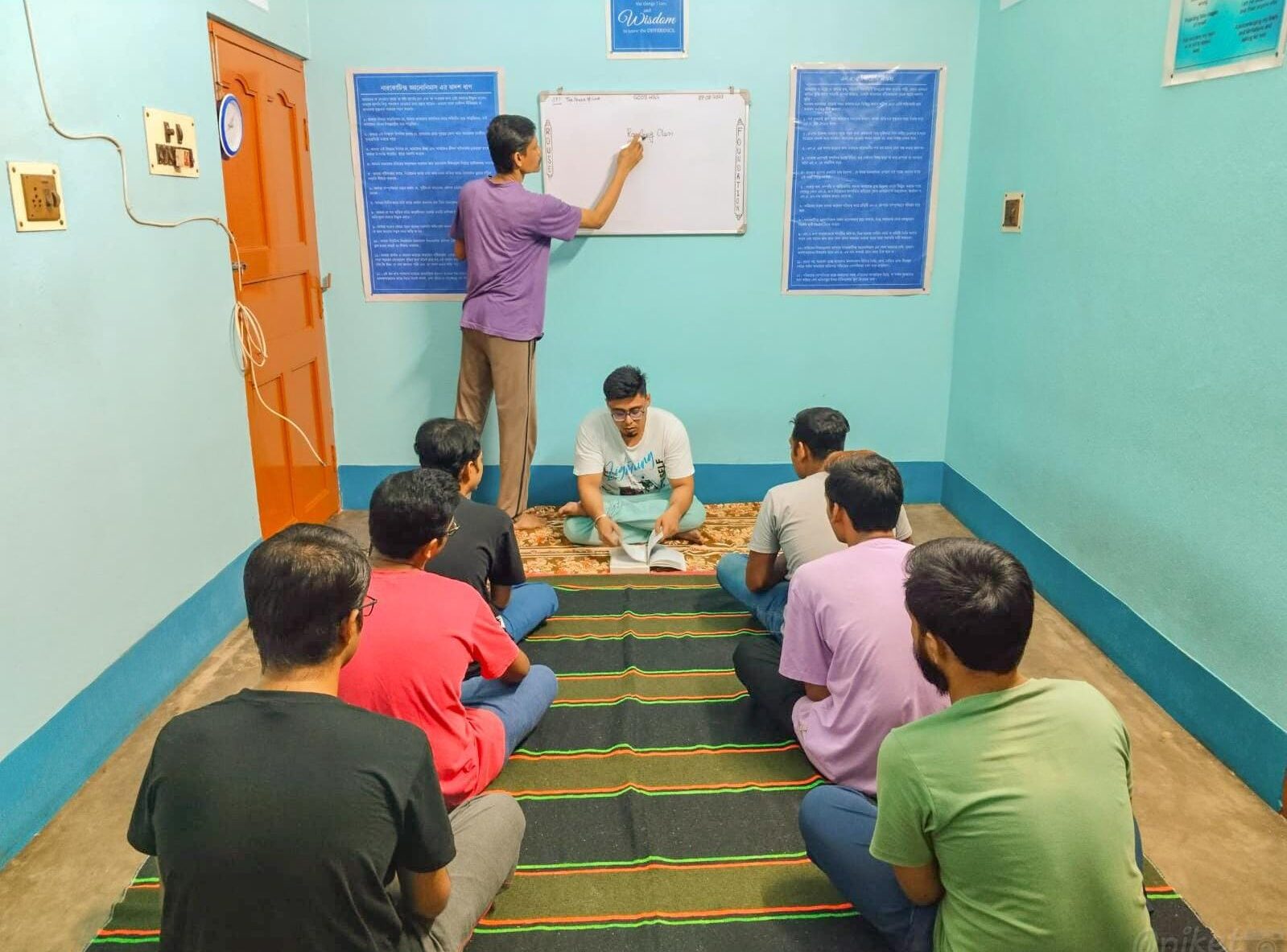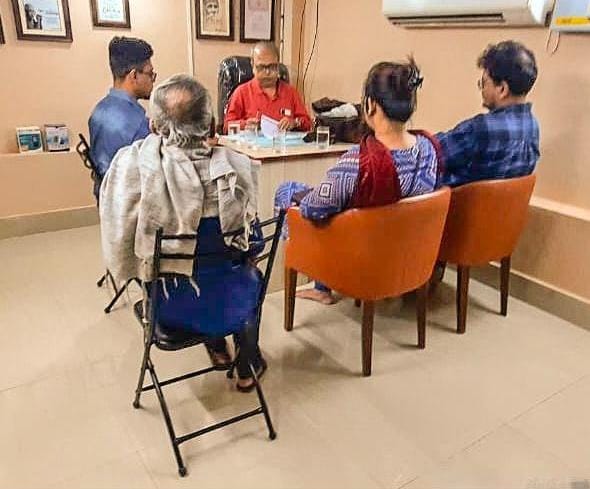Helping each other can make world better
Rouse Foundation is the best rehabilitation center in Kolkata for alcohol and drug addiction. We offer comprehensive treatment programs for all types of substance abuse disorders, including alcoholism, opioid addiction, and more. Our dedicated team of professionals will work with you to create a personalized treatment plan that meets your individual needs. We are committed to helping you achieve long-term sobriety and recovery.
Here are some of the services we offer at Rouse Foundation:
Alcoholism treatment
Opioid replacement therapy
Drug detox
Individual and group therapy
Life skills training
Aftercare support
We are located in a quiet and peaceful setting, away from the distractions of city life. This allows our clients to focus on their recovery without the added stress of everyday life. We also offer a variety of amenities to make your stay as comfortable as possible, including:
Spacious rooms
Delicious meals
Recreational activities
On-site medical care
If you are struggling with alcohol or drug addiction, Rouse Foundation can help. Contact us today to learn more about our programs and how we can help you achieve long-term sobriety.
Discover MoreNeed help to get yourself out from Alcoholic or Drug addtiction?
Help is just a call away. Click on the button below to get help.
What they are talking about Us.





Demo
"Lorem Ipsum is simply dummy text of the printing and typesetting industry. Lorem Ipsum has been the industry's standard dummy text ever since the 1500s, when an unknown printer took a galley of type and scrambled it to make a type specimen book. "

demo2
"Lorem Ipsum is simply dummy text of the printing and typesetting industry. Lorem Ipsum has been the industry's standard dummy text ever since the 1500s, when an unknown printer took a galley of type and scrambled it to make a type specimen book. "
Our photo gallery
People are frequently asking some questions from us
Q: Who is an Addict?
An addict is someone who has developed a strong dependence on a substance, behavior, or activity to the extent that it becomes difficult to control and disrupts their daily life and overall well-being. Addiction is marked by an inability to manage or cease the consumption or participation in the substance or behavior, even when faced with harmful consequences. Addiction can take many forms, including substance addictions (like alcohol, opioids, and stimulants), gambling addiction, internet addiction, gaming addiction, or even excessive attachment to actions such as shopping or eating. Importantly, addiction is a multifaceted condition that affects individuals regardless of age, gender, economic status, or educational level. It's vital to approach addiction with compassion and empathy, recognizing it as a medical issue rather than a moral shortcoming. Seeking professional assistance and support is crucial for those grappling with addiction to overcome their difficulties and work towards a healthier and more enriching life.
Q: Why is addiction treatment important?
Addiction treatment holds significant importance for several key reasons: 1. Disrupting the addiction cycle: Addiction is an enduring and recurring condition, necessitating effective intervention for resolution. Treatment programs furnish individuals with the necessary resources, techniques, and encouragement to break free from the clutches of addiction and establish a more wholesome lifestyle. 2. Tackling root concerns: Often, addiction acts as a manifestation of underlying, deeper-seated issues like trauma, mental health disorders, or unresolved emotional distress. Treatment initiatives are designed to pinpoint and confront these foundational factors, providing individuals with a chance to heal and cultivate healthier coping mechanisms. 3. Enhancing physical and mental well-being: Substance abuse takes a significant toll on both physical and mental health. Addiction treatment homes in on detoxification, management of withdrawal symptoms, and provision of medical care to mitigate the physical harm linked to substance misuse. Furthermore, therapy and counseling play pivotal roles in treatment, contributing to the advancement of mental well-being and emotional equilibrium. 4. Mastery of relapse prevention techniques: The journey to recovery from addiction spans a lifetime, with the possibility of relapse being a reality for many. Treatment programs equip individuals with strategies to prevent relapses, educating them on how to identify triggers, manage cravings, and develop constructive coping mechanisms that facilitate sustained sobriety. 5. Forging a support network: Addiction treatment programs create a nurturing environment where individuals can connect with peers who empathize with their challenges. This communal bond is invaluable during the recovery process, offering encouragement, mutual accountability, and a circle of individuals who share similar experiences. 6. Elevating overall quality of life: The repercussions of addiction span various spheres, including relationships, work or academic performance, financial stability, and personal contentment. By addressing addiction through treatment, individuals are presented with the opportunity to reconstruct their lives, mend relationships, regain productivity, and rediscover happiness and purpose in life. In essence, addiction treatment serves as a crucial mechanism for disrupting the cycle of addiction, confronting underlying triggers, enhancing both physical and mental well-being, acquiring strategies for relapse prevention, cultivating a supportive network, and ultimately enriching the holistic quality of life for those grappling with addiction.
Q: How treatment center helps with addiction?
Treatment centers play a pivotal role in aiding individuals in their journey towards overcoming addiction through tailored and extensive care. Here's how these centers support individuals in their path to recovery: 1. Thorough evaluation and personalized plans: Treatment centers initiate the process by conducting a comprehensive assessment of the individual's addiction history, mental and physical well-being, and other pertinent factors. This evaluation informs the creation of a customized treatment plan that addresses the individual's unique requirements and obstacles. 2. Managed detoxification and medical assistance: Individuals dealing with substance dependencies receive closely supervised detoxification at treatment centers. This ensures the safe management of withdrawal symptoms during the initial stages of sobriety. Medical professionals closely monitor the detox process to guarantee comfort and safety. 3. Therapeutic guidance and counseling: Various therapeutic interventions, including individual counseling, group therapy, and family counseling, are provided at treatment centers. These sessions enable individuals to delve into the underlying causes of their addiction, cultivate effective coping strategies, and acquire the skills necessary to uphold their sobriety. Therapists and counselors offer ongoing guidance and support throughout the recovery journey. 4. Knowledge enrichment and skill development: Treatment centers offer educational initiatives and workshops to help individuals grasp the intricacies of addiction, its ramifications on their lives, and the essential tools for recovery. Topics encompass relapse prevention, stress management, effective communication, and methods for constructing a healthy lifestyle. 5. Peer camaraderie and community engagement: Treatment centers foster a compassionate and empathetic atmosphere where individuals can connect with peers who share similar trials. Group therapy sessions and support groups foster a sense of belonging and enable individuals to exchange experiences, receive encouragement, and extend support to those who empathize with their challenges. 6. Holistic methods: Many treatment centers incorporate holistic techniques to complement conventional therapy. These may encompass mindfulness exercises, yoga, art therapy, music therapy, or outdoor recreational activities. Such holistic practices encourage self-discovery, relaxation, stress reduction, and overall well-being. 7. Post-treatment planning: Treatment centers underscore the significance of developing a comprehensive aftercare strategy to sustain individuals' long-term recovery. This strategy may involve ongoing therapy, participation in support groups, residing in sober living environments, vocational or educational support, and connections to community resources. By providing an environment of structure and support, access to professional care, evidence-based therapies, peer camaraderie, and a well-rounded aftercare approach, treatment centers supply individuals grappling with addiction the necessary resources and guidance to surmount their challenges and sustain enduring recovery.















